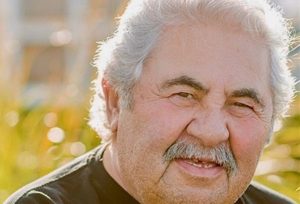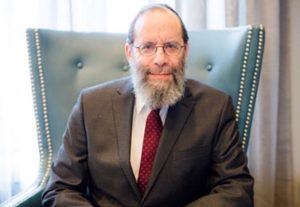More than 80 years after the Second World War, a duo of Canadian researchers are uncovering a forgotten Jewish contribution to that epic struggle.
Until their effort started three years ago, history had almost forgotten the 280 Jewish women who joined their fathers, brothers and uncles in the war.
Being in the military, one of the veterans wryly admitted, was “a queer job for a girl,” but the researchers say it’s a contribution that deserves to be remembered.
The two researchers include art historian Jennifer Eiserman and librarian Saundra Lipton. The pair has assembled a website chronicling the stories of many of those veterans, called “She Also Serves,” which is being produced with the University of Calgary.
“It’s just fascinating to hear these stories,” Lipton said in an interview. “I wish I had started this 20 or even 10 years ago, when more of these women were still alive.”
LISTEN: Ellin Bessner and Saundra Lipton discuss the Jewish women behind Canada’s wartime effort on The CJN Daily podcast
“To honour them, we had to find them first,” she added. “We’d never thought of Jewish women serving in war, but when we started looking, finding one led to finding more. The secondary sources talk of the exploits of the men, but rarely mention the women. I decided I was going to find these women.”
These uncovered stories show Canadian Jewish women involved in almost every aspect of Canada’s wartime effort.
Many served as nurses, “working in tents behind the front lines,” noted journalist Ellin Bessner, an expert in the field and author of Double Threat: Canadian Jews, the Military, and World War II. (Bessner also hosts The CJN’s daily news podcast, The CJN Daily.) But these women could also be found in the ranks of military police officers and working as secretaries to senior officers. They performed grisly tasks like picking up body parts after aircraft accidents. At least one worked at the ultra-secret Bletchley Park code-breaking centre, helping Allied leaders listen in on German communications. That eavesdropping let Canadian ships hunt down German submarines and allowed Allied commanders to anticipate their enemy’s next moves on the global chess board.
At the end of the war, when the full horror of the Holocaust was revealed, some worked in the death camps, helping survivors, tracing families and interrogating captured Nazis.
One was honoured for bravery, and one was killed in service.
One such story, that of Nova Scotia–born Lt. Edith Levine, captures some of the contributions of Canadian Jewish women.
She joined the Canadian army as a nurse in 1943. After training in Canada, she was sent to England where she treated soldiers who had been wounded in the D-Day landings. Later she followed Canadian troops through France, Germany and Belgium as they exterminated the Hitler regime.
During that time, she learned her brother Jack had been killed in action in France.
After the war, Levine picked up the pieces of her life, married Harry Stein and became a mother, grandmother and great-grandmother. The memory of her war service, however, was locked away to the point that her 2010 death notice makes no mention of it.
That’s not uncommon, Bessner said, but it’s also something that can be changed.
“It happens, partly, because nobody ever asked them about the war, and partly because women in military history have always been silent,” she said. “Some didn’t talk about it because they didn’t think they’d done anything to talk about.”
“After 75 years, the voices of Canadian Jewish women in uniform are being heard again, and more and more men and women are starting to pay attention to this in Jewish scholarly circles,” she added. “A veil of neglect has been pulled aside in the last three years.”
So far, the researchers have compiled and posted about three dozen stories and hope knowledge of their effort will inspire more families to start digging through their history.
One such story emerges from Bessner’s own family history—that of her great-aunt Daisy Lazare (later Friedberg) who served in the Canadian Army Women’s Corps as a military police corporal.
In a newspaper interview at the time, she said her role was “a queer job for a girl. But nobody can say it’s not interesting.”
That “queer job” included learning judo and wrestling techniques along with shooting and military law.
The website displaying the stories of these women, entitled “She Also Serves”, is accompanied by an art exhibit. The site is hosted by the University of Calgary.







